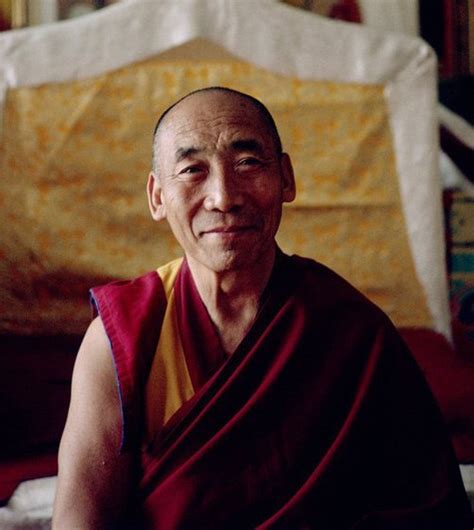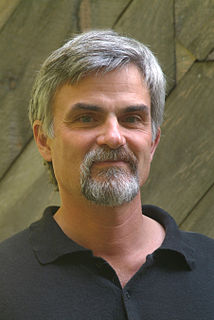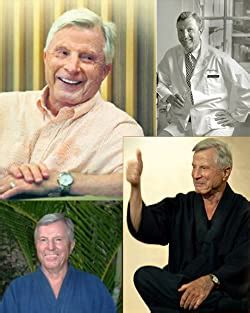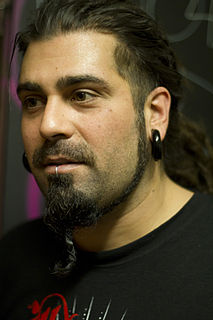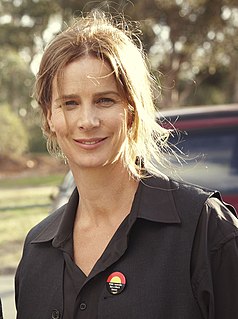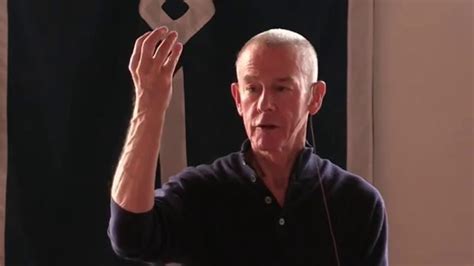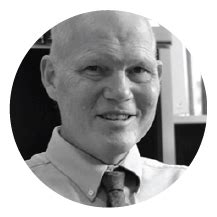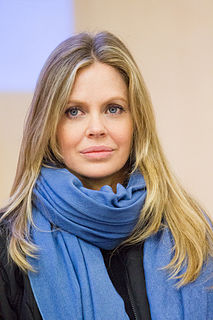Top 1130 Zen Buddhist Quotes & Sayings - Page 19
Explore popular Zen Buddhist quotes.
Last updated on April 14, 2025.
Hidden in all good fortune is misfortune. And in all misfortune is good fortune. It's never going to stay the same as long you are in the world or unless you die while you are alive and become an enlightened Zen Master. But those people don't exist. When you study their lives, you find that they had the same struggles as the rest of us. It's not so much about being able to always have calm. Calmness isn't just the absence of noise or troubles. It's being able to find calm within yourself when other stuff is going on.
The perfection of joyful determination is defined as taking delight or feeling joy in doing something positive or virtuous. If you are very joyful about doing negative things or about being busy with meaningless activities, this is not called joyful exertion from a Buddhist point of view. This kind of attitude is actually a form of laziness, an attachment to frivolous activities. Such a person would not be considered diligent at all. But if you are JOYFUL and DETERMINED TO PERFORM POSITIVE ACTIONS, then as a result, you discover and learn many new things that you didn't know about before.
The question has often been asked; Is Buddhism a religion or a philosophy? It does not matter what you call it. Buddhism remains what it is whatever label you may put on it. The label is immaterial. Even the label 'Buddhism' which we give to the teachings of the Buddha is of little importance. The name one gives is inessential.... In the same way Truth needs no label: it is neither Buddhist, Christian, Hindu nor Moslem. It is not the monopoly of anybody. Sectarian labels are a hindrance to the independent understanding of Truth, and they produce harmful prejudices in men's minds.
From a Buddhist point of view, the actual experience of death is very important. Although how or where we will be reborn is generally dependent on karmic forces, our state of mind at the time of death can influence the quality of our next rebirth. So at the moment of death, in spite of the great variety of karmas we have accumulated, if we make a special effort to generate a virtuous state of mind, we may strengthen and activate a virtuous karma, and so bring about a happy rebirth.
The Bible represents a fundamental guidepost for millions of people on the planet, in much the same way the Koran, Torah, and Pali Canon offer guidance to people of other religions. If you and I could dig up documentation that contradicted the holy stories of Islamic belief, Judaic belief, Buddhist belief, pagan belief, should we do that? Should we wave a flag and tell the Buddhists that the Buddha did not come from a lotus blossom? Or that Jesus was not born of a literal virgin birth? Those who truly understand their faiths understand the stories are metaphorical.
I felt I was drawing close to that age, that place in life, where you realize one day what you'd told yourself was a Zen detachment turns out to be naked fear. You'd had one serious love relationship in your life and it had ended in tragedy, and the tragedy had broken something inside you. But instead of trying to repair the broken place, or at least really stop and look at it, you skated and joked. You had friends, you were a decent citizen. You hurt no one. And your life was somehow just about half of what it could be.
Although you can find certain differences among the Buddhist philosophical schools about how the universe came into being, the basic common question addressed is how the two fundamental principles-external matter and internal mind or consciousness-although distinct, affect one another. External causes and conditions are responsible for certain of our experiences of happiness and suffering. Yet we find that it is principally our own feelings, our thoughts and our emotions, that really determine whether we are going to suffer or be happy.
I'm working at trying to be a Christian and that's serious business. It's like trying to be a good Jew, a good Muslim, a good Buddhist, a good Shintoist, a good Zoroastrian, a good friend, a good lover, a good mother, a good buddy?it's serious business. It's not something where you think, Oh, I've got it done. I did it all day, hotdiggety. The truth is, all day long you try to do it, try to be it, and then in the evening if you're honest and have a little courage you look at yourself and say, Hmm. I only blew it eighty-six times. Not bad.
A wise man once told me- he’s a muslim by the way- that he has more in common with a jew than he does a fanatic of his own religion. He has more in common with a rational, reasonable-minded Christian or a Buddhist or Hindu than he does with a fanatic of his own religion. In fact, he has more in common with a ration, reasonable-minded atheist than he does with a fanatic of his own religion
Whether you believe in God or not does not matter so much, whether you believe in Buddha or not does not matter so much; as a Buddhist, whether you believe in reincarnation or not does not matter so much. You must lead a good life. And a good life does not mean just good food, good clothes, good shelter. These are not sufficient. A good motivation is what is needed: compassion, without dogmatism, without complicated philosophy; just understanding that others are human brothers and sisters and respecting their rights and human dignity.
The saying "no self, no problem" probably comes from Zen. In their cultures, where Buddhism is kind of taken for granted, as well as karma, causality, former and future life, and the possibility for becoming enlightened, then it's safe to skirt the danger of nihilism, which would be, I don't exist because Buddha said I have no self, and therefore I have no problem because I don't exist. That would be a bad misunderstanding. But in those cultures, it would not be as easy to have that understanding as it would be here in the west, where we really are nihilistic.
Human beings by nature want happiness and do not want suffering. With that
feeling everyone tries to achieve happiness and tries to get rid of suffering, and everyone has the basic right to do this. In this way, all here are the same, whether rich or poor, educated or uneducated, Easterner or Westerner, believer or non-believer, and within believers whether Buddhist, Christian, Jewish, Muslim, and so on. Basically, from the viewpoint of real human value we are all the same.
The Zen meditative approach has a simple, unstated premise: moods and attitudes shape—determine—what we think and perceive. If we feel happy, we tend to develop certain trains of thought. If we feel sad or angry, still others. But suppose, with training, we become nonattached to distractions and learn to dampen these wild, emotional swings on either side of equanimity. Then we can enter that serene awareness which is the natural soil for positive, spontaneous personal growth, often called spiritual growth.
There is a story in Zen circles about a man and a horse. The horse is galloping quickly, and it appears that the man on the horse is going somewhere important. Another man standing alongside the road, shouts, «Where are you going?» and the first man replies, «I don't know! Ask the horse!» This is also our story. We are riding a horse, and we don't know where we are going and we can't stop. The horse is our habit energy pulling us along, and we are powerless.
It's pretentious to say, but my art is like a little Zen story, a story with a question mark at the end. People can take from it what they need. If somebody says, "Your art is very funny," I say, "You are totally right." If somebody says, "Your art is very sad," I say, "You are totally right." In Japan they say, "Your art is very Japanese, you even look Japanese.Your great-grandfather was most surely a Japanese man." And I say, "You are totally right."
Although I'm not Christian, I was raised Christian. I'm an atheist, with a slight Buddhist leaning. I've got a very strong sense of morality - it's just a different morality than the loud voices of the Christian morality.... I can't tell you how many films I've turned down because there was an absence of morality. And I don't mean that from any sort of Judeo-Christian-Muslim point of view. I'm not saying they're wrong and can't be made. But, fundamentally, I'm such a humanist that I can't bear to make films that make us feel humanity is more dark than it is light.
If we had the consciousness of a cat or a dog, we would have it in us to become perfect Zen masters. We could gnaw on a bone, take a nap, play with a spider until we killed it, get our litter just right, and be innocently and serenely present. Meaning would mean nothing to us, nor would we need it to mean anything. We would be free, and we would be spared. But, we are human beings, and we posses that odd duck – human consciousness.
I thought, man, if you could run 100 miles, you'd be in this Zen state. You'd be the f**king Buddha. Bringing peace and a smile to the world. In my case, it didn't work. I'm the same old punk ass as ever. But there's always this hope that it'll turn you into the person you want to be. You know, like a better, more peaceful person. And when I'm out on a long run, the only thing in life that matters is finishing the run. For once, my brain isn't going 'bleh bleh bleh bleh.' Everything just quiets down, and the only thing going on is pure flow
Does the unmistakeable intent of Versailles to proclaim dominion over nature destroy its aesthetic appeal, as Schopenhauer thought? Does the greenness of the lawn lose its allure when we learn how much water, sorely needed elsewhere, it uses? And historical shifts in garden taste - from formal, 'French' gardens to 'Capability' Brown's landscapes, for instance, or from the elaborate gardens of imperial Kyoto to Zen 'dry' gardens - register important changes in philosophical or religious attitudes.
I have sort of a Zen body philosophy, I'm sort of like: we're one weight one day, we're one weight another day, and some day our body just doesn't even exist at all! It's just a vessel I've been given to move through this life. I think about my body as a tool to do the stuff I need to do, but not the be all and end all of my existence. Which sounds like I spent a week at a meditation retreat, but it's genuinely how I feel.
You can call it tathata, suchness. 'Suchness' is a Buddhist way of expressing that there is something in you which always remains in its intrinsic nature, never changing. It always remains in its selfsame essence, eternally so. That is your real nature. That which changes is not you, that is mind. That which does not change in you is buddha-mind. You can call it no-mind, you can call it samadhi, satori. It depends upon you; you can give it whatsoever name you want. You can call it christ-consciousness.
Every time I try to disown that concept for myself, which is a really healthy perspective, they bring it back all the time. It's so serious and so real and so tangible that you don't want to taint it with anything other than the thing itself. I was tickled pink with my very zen self, walking around saying that I made a record because I wanted to make a record. That's so beautiful. It's like a haiku poem. That takes away all the tension and the expectation. I just want to try to do something interesting.
There is no one way to salvation, whatever the manner in which a man may proceed. All forms and variations are governed by the eternal intelligence of the Universe that enables a man to approach perfection. It may be in the arts of music and painting or it may be in commerce, law, or medicine. It may be in the study of war or the study of peace. Each is as important as any other. Spiritual enlightenment through religious meditation such as Zen or in any other way is as viable and functional as any "Way."... A person should study as they see fit.
Karma is the record of services. Karma is the term used in Buddhist teaching. Taoists use the term te. Christians us the term "deed." Many other spiritual beings use the term "virtue." Karma, te, deed, and virtue are the same thing but in different words. To understand karma is to understand all of these words.
If you understand real practice, then archery or other activities can be zen. If you don't understand how to practice archery in its true sense, then even though you practice very hard, what you acquire is just technique. It won't help you through and through. Perhaps you can hit the mark without trying, but without a bow and arrow you cannot do anything. If you understand the point of practice, then even without a bow and arrow the archery will help you. How you get that kind of power or ability is only through right practice.
I work in several different groups of pictures which act on and with each other - ranging from several abstracted manners to a form for the surreal. I have been called a preacher - but, in reality, I'm more generally philosophical. I have never made an abstracted photograph without content. An educated background in Zen influences all of my photographs. It has been said that my work resembles, more closely than any photographer, Le Douanier Rousseau - working in a fairly isolated area and feeding mostly on myself - I feel that I am a primitive photographer.
I didn't mean for you to take that the wrong way," He said abruptly. Mae stared at him in amazement. So, for that matter, did Jamie. "What?" "Demons don't touch anyone without a reason," Nick went on, his eyes shut again. "You can imagine what kind of reasons we usually have. I don't like--not anyone--I didn't mean anything by it." "Oh," said Jamie. "Oh, that's okay! That's fine. I understand. I am filled to the brim with understanding and, and acceptance! I'm very Zen like that.
I see a vision of a great rucksack revolution thousands or even millions of young Americans wandering around with rucksacks, going up to mountains to pray, making children laugh and old men glad, making young girls happy and old girls happier, all of 'em Zen Lunatics who go about writing poems that happen to appear in their heads for no reason and also by being kind and also by strange unexpected acts keep giving visions of eternal freedom to everybody and to all living creatures.
One day Mara, the Buddhist god of ignorance and evil, was traveling through the villages of India with his attendants. He saw a man doing walking meditation whose face was lit up in wonder. The man had just discovered something on the ground in front of him. Mara's attendants asked what that was and Mara replied, "A piece of truth." "Doesn't this bother you when someone finds a piece of the truth, O evil one?" his attendants asked. "No," Mara replied. "Right after this they usually make a belief out of it."
You can keep your own religion - Buddhism, Islam, Hinduism, Mormonism - you just need to add Jesus to the equation. Then you become complete. You become a Buddhist with Jesus, a Hindu with Jesus, a Muslim with Jesus and so on. You can throw out the term Christianity and still be a follower of Jesus. In fact, you can throw out the term Christian too. In some countries, you could be persecuted for calling yourself a Christian, and there is no need for that. Just ask Jesus into your heart, you don't have to identify yourself as a Christian.
I think it would help if, when people are first ordained, they underwent a period of strict training, maybe for several years. During this time they would learn basic Buddhist philosophy in a monastic community where all the teaching and training was directed toward living a perfect monastic life and wasn't channeled out to fit into the lay life - which is what usually happens in Dharma centers where the teachings are directed toward how to live the Dharma in your everyday life.
Zen says that if you drop knowledge - and within knowledge everything is included; your name, your identity, everything, because this has been given to you by others - if you drop all that has been given by others, you will have a totally different quality to your being: innocence. This will be a crucifixion of the persona, the personality, and there will be a resurrection of your innocence. You will become a child again, reborn.
In Buddhist ideology, the conventional self is that which is constructed in a way by the use of the pronoun, and when you realize there is no absolute ego there, no disconnected one, self, or ego, then that actually strengthens your conventional ego. It does so in the sense that then you realize it's a construction, and you can strengthen it in order to help others, or do whatever you're trying to do, it's not like you no longer know who you are. Then you can organize your behavior by using your ego, as it's now the pronoun.
Dharma is not about credentials. It's not about how many practices you've done, or how peaceful you can make your mind. It's not about being in a community where you feel safe or enjoying the cachet of being a 'Buddhist.' It's not even about accumulating teachings, empowerments, or 'spiritual accomplishments.' It's about how naked you're willing to be with your own life, and how much you're willing to let go of your masks and your armor and live as a completely exposed, undefended, and open human person.
Everyone needs a spiritual guide: a minister, rabbi, counselor, wise friend, or therapist. My own wise friend is my dog. He has deep knowledge to impart. He makes friends easily and doesn't hold a grudge. He enjoys simple pleasures and takes each day as it comes. Like a true Zen master he eats when he is hungry and sleeps when he is tired. He's not hung up about sex. Best of all, he befriends me with an unconditional love that human beings would do well to imitate.
I think there's some pretty amazing language in the Bible. The thing that's always been interesting to me about religion is that compared to the more modern spirituality, the West Coast pseudo-Buddhist thing that people go for these days, actual Buddhism and Islam have been looking at these philosophical questions, at really hard questions, for a long time. There's a lot of stuff that philosophy doesn't talk about, and in the secular world, a lot of times, people don't talk about these ideas, and that was always really interesting for me.
The Zen Master warns: 'If you meet the Buddha on the road, kill him!' This admonition points up that no meaning that comes from outside of ourselves is real. The Buddhahood of each of us has already been obtained. We need only recognize it. Philosophy, religion, patriotism, all are empty idols. The only meaning in our lives is what we each bring to them. Killing the Buddha on the road means destroying the hope that anything outside of ourselves can be out master. No one is any bigger than anyone else. There are no mothers or fathers for grown-ups, only sisters and brothers.
We live in a supermarket of ideas, faiths, practices, theories, ideologies, and much else besides. Never in human history have there been so many movements and ideas struggling to attract our attention. Added to this, the Western world is swamped by material goods and the Western mind is dominated by the goal of material success. In all this confusion, Zen stands out as a voice of sanity. It represents a different way of seeing the world, one based upon the rediscovery of who we really are and have always been, through revealing to us our true nature.
I think what happens in a religious life is that we have those experiences of affirmation and that one starts to live a Christian life or a Jewish life or a Muslim life or a Buddhist life, by affirming that affirmation each day. Each day you say 'Yes' to that Yes. So the life of being a Christian for example, is always a life of double affirmation, that you each day say 'Yes' to those counter-experiences of saying 'Yes', even when you're not experiencing them at that time, you're remaining loyal to that experience.
I make sure I have the best: I figure you could spend $800 on an outfit you wear three times, but with your hair it's there all the time. I also think it is really important to look after your colour once it's been done. I try and give my hair a really nourishing mask every so often to combat against all the styling. I also love to have beauty treatments that really benefit, like massages. t's divine to get up and feel all zen and relaxed.
Laughter. Yes, laughter is the Zen attitude towards death and towards life too, because life and death are not separate. Whatsoever is your attitude towards life will be your attitude towards death, because death comes as the ultimate flowering of life. Life exists for death. Life exists through death. Without death there will be no life at all. Death is not the end but the culmination, the crescendo. Death is not the enemy it is the friend. It makes life possible.
Here's an example: someone says, "Master, please hand me the knife," and he hands them the knife, blade first. "Please give me the other end," he says. And the master replies, "What would you do with the other end?" This is answering an everyday matter in terms of the metaphysical. When the question is, "Master, what is the fundamental principle of Buddhism?" Then he replies, "There is enough breeze in this fan to keep me cool." That is answering the metaphysical in terms of the everyday, and that is, more or less, the principle zen works on. The mundane and the sacred are one and the same.
Zen brings creativity. And remember, if you want to be one with the creator, you will have to learn some ways of creativity. The only way to be one with the creator is to be in some moment of creativity, when you are lost. The potter is lost in making his pottery; the potter is lost while working on the wheel. The painter is lost while painting. The dancer is lost; there is no dancer, only the dance remains. Those are the peak moments, where you touch God, where God touches you.
A person without an Apple watch is perfectly content with his present watch but when he sees his friends buying the watch, he will hanker for an Apple watch. The endless cycle of wanting, getting, and wanting again is part of the plot of Capitalism. It is the way Capitalism creates jobs. The only antidote is Buddhism that holds that people might be happier by renouncing desire rather than by striving to satisfy desire. But then how can the economy create enough jobs in a Buddhist society of "less is more."
You're always striving for a place of Zen. Or a flow state, where you kind of transcend reality and you go to the other place. It's when everything is in sync, and everyone is connecting with one another. Everything is going perfectly. You lose yourself. It's the ultimate form of meditation where it's an out - of - body experience. Afterward you come back to Earth and you're like, 'What just happened? We just did something awesome!' It's this energy in the room when you know you're nailing it and you know everyone else is feeling it too. That's why theater is so awesome.
I have more things going on right now than I can actually do without the invention of a cloning device. It is great! But it does give me many opportunities to practice trying to learn the lesson of being more Zen. I tend to worry about each "emergency" or unforeseen complication on all my projects. But there are so many! All of life is unforeseen! So I am learning that is the cycle of life - everything is cyclical and temporary and to get ok with that someday could be my greatest achievement.
Finally, I would like to assure my many Buddhist, Christian, Hindu, Jewish, and Muslim friends that I am sincerely happy that the religion which Chance has given you has contributed to your peace of mind (and often, as Western medical science now reluctantly admits, to your physical well-being). Perhaps it is better to be un-sane and happy, than sane and un-happy. But it is the best of all to be sane and happy. Whether our descendants can achieve that goal will be the greatest challenge of the future. Indeed, it may well decide whether we have any future.

